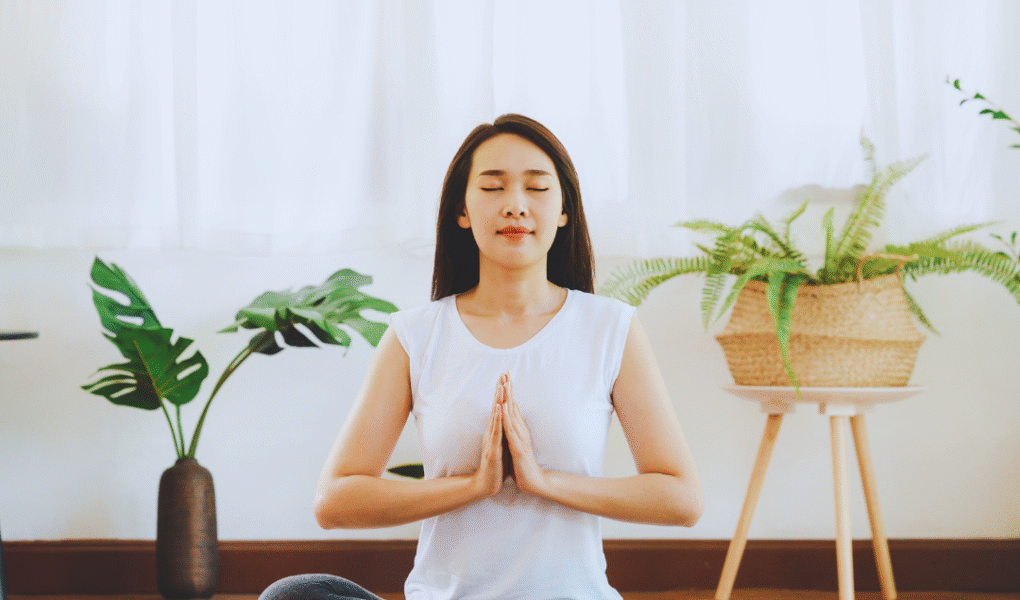In the hustle of daily life, small actions can significantly impact mental wellness. Incorporating daily rituals, such as mindfulness meditation, journaling, or simple breathing exercises, can enhance mental clarity and reduce stress. These practices encourage individuals to establish a clearer connection with their thoughts and emotions, fostering a sense of balance and well-being.
Many people overlook the power of consistent, small habits that promote mental health. Simple rituals can create a foundation for stability, enabling one to navigate challenges with more resilience. By dedicating even a few minutes each day to these activities, they can cultivate a more peaceful and positive mindset.
Integrating these small daily rituals into one’s routine takes minimal time yet yields profound benefits. As individuals explore these practices, they may find themselves feeling more grounded and able to manage the ups and downs of life with greater ease.
The Power of Small Daily Rituals
Small daily rituals play a significant role in enhancing mental wellness. By establishing routines, individuals can create a sense of stability and predictability in their lives, which contributes positively to their mental health.
How Rituals Shape Well-Being
Rituals provide a framework for daily living that can be both comforting and empowering. Engaging in familiar activities can lead to reduced anxiety and improved mood. For example, a morning coffee routine gives individuals a moment to center themselves before starting the day.
When people consistently practice small rituals, they foster a sense of control. This sense of control can counteract feelings of chaos and uncertainty. Regular engagement in these practices helps solidify their role in daily life, reinforcing positive mental habits.
Benefits of Consistent Daily Routines
Establishing a consistent daily routine promotes better time management and reduces stress. When tasks are scheduled and predictable, individuals are less likely to feel overwhelmed. Simple rituals like designated work hours or evening wind-down times help structure the day effectively.
Moreover, routines create opportunities for self-care. Including activities like meditation or reading in one’s daily routine can enhance relaxation and mental clarity. These moments of intentional focus serve to replenish mental energy and support emotional resilience.
Building Healthy Habits for Mental Wellness
Creating healthy habits through daily rituals requires commitment and intention. Individuals should start by identifying activities that resonate personally, such as journaling or stretching.
Tracking these habits can increase accountability. A simple checklist or habit tracker can help in maintaining consistency. Over time, as these rituals are integrated into daily life, they contribute to improved mental health and overall well-being.
Adjustments to routines may be necessary as life changes, ensuring the rituals remain relevant and beneficial. Regular evaluation allows individuals to focus on what truly supports their mental wellness journey.
Essential Small Rituals to Improve Mental Wellness
Implementing small daily rituals can significantly enhance mental wellness. Key practices include mindfulness, gratitude, journaling, and establishing effective routines. Each of these rituals contributes uniquely to fostering a positive mental state.
Mindfulness and Meditation
Mindfulness and meditation focus the mind, encouraging individuals to remain present. They involve techniques that help reduce stress and enhance emotional regulation.
- Techniques: Breathing exercises, body scans, or guided meditations can be effective.
- Duration: Even short sessions of 5-10 minutes can yield benefits.
- Benefits: Regular practice leads to improved focus, reduced anxiety, and greater overall awareness.
Incorporating mindfulness into daily activities, such as eating or walking, can also foster a deeper connection to the present moment.
Gratitude Practices
Practicing gratitude is a powerful tool for enhancing mental wellness. It shifts focus from negative to positive experiences, thus improving mood.
- Daily Journaling: Writing down three things one is grateful for can strengthen this practice.
- Reflection: Spending a few minutes reflecting on these aspects can boost happiness.
- Sharing: Expressing gratitude to others builds stronger relationships and fosters a supportive community.
Adopting this mindset can lead to increased resilience and emotional well-being.
Journaling for Self-Discovery
Journaling serves as a means for self-reflection and emotional clarity. It allows individuals to articulate thoughts and feelings effectively.
- Types of Journals: Daily logs, prompts, or free writing can guide this practice.
- Frequency: Writing regularly, whether daily or weekly, can enhance self-awareness.
- Themes: Topics may include personal experiences, emotional challenges, or future goals.
Through journaling, individuals can identify patterns in their thoughts and behaviors, facilitating personal growth and understanding.
Morning and Nighttime Routines
Establishing consistent morning and nighttime routines fosters stability and promotes self-care. These rituals help reset the mind and body, preparing one for the day ahead or unwinding in the evening.
- Morning Practices: Incorporating light movement, a nutritious breakfast, or mindfulness sets a positive tone for the day.
- Nighttime Practices: Reducing screen time, engaging in relaxing activities, and creating a calming sleep environment ensure restful sleep.
- Impact: Consistent routines contribute to better mental clarity and emotional resilience.
By adhering to these small yet essential rituals, individuals can cultivate a more balanced and fulfilling life.
Movement, Rest, and Creating Balance
Integrating movement and rest into daily routines fosters better mental wellness. This balance helps to reduce burnout, enhance productivity, and promote emotional resilience.
Incorporating Exercise and Physical Activity
Regular exercise significantly contributes to mental health. Engaging in activities like walking, jogging, or cycling increases endorphin levels, often referred to as “feel-good” hormones.
Benefits include:
- Improved mood
- Reduced anxiety levels
- Enhanced cognitive function
Short sessions of physical activity, even as brief as 10-15 minutes, can be effective. Incorporating activities into daily life, such as taking the stairs or walking during breaks, helps combat sedentary behaviors. Moreover, these small changes can lead to substantial improvements in emotional well-being over time.
Using Yoga and Stretching for Stress Relief
Yoga and stretching offer techniques to manage stress and promote relaxation. They combine physical movement with mindful breathing, helping to calm the mind and body.
Practicing yoga positions, like child’s pose or corpse pose, can alleviate tension.
Key advantages include:
- Increased flexibility
- Better posture
- Reduced muscle tension
Creating a personalized routine or following guided sessions can enhance the experience. Regular practice encourages people to reconnect with their bodies and find stillness amid a busy lifestyle, further supporting mental wellness.
Embracing Silence and Slowing Down
In a fast-paced world, embracing moments of silence is crucial. Taking time to slow down allows individuals to reflect, recharge, and cultivate mindfulness.
Simple practices include meditation, deep breathing, or nature walks, which can lower stress levels.
Silent moments contribute to mental wellness by:
- Encouraging self-reflection
- Improving focus
- Providing emotional clarity
Incorporating brief periods of silence during the day can help reduce feelings of overwhelm. Prioritizing this practice may lead to improved mental health and a greater sense of balance in daily life.




